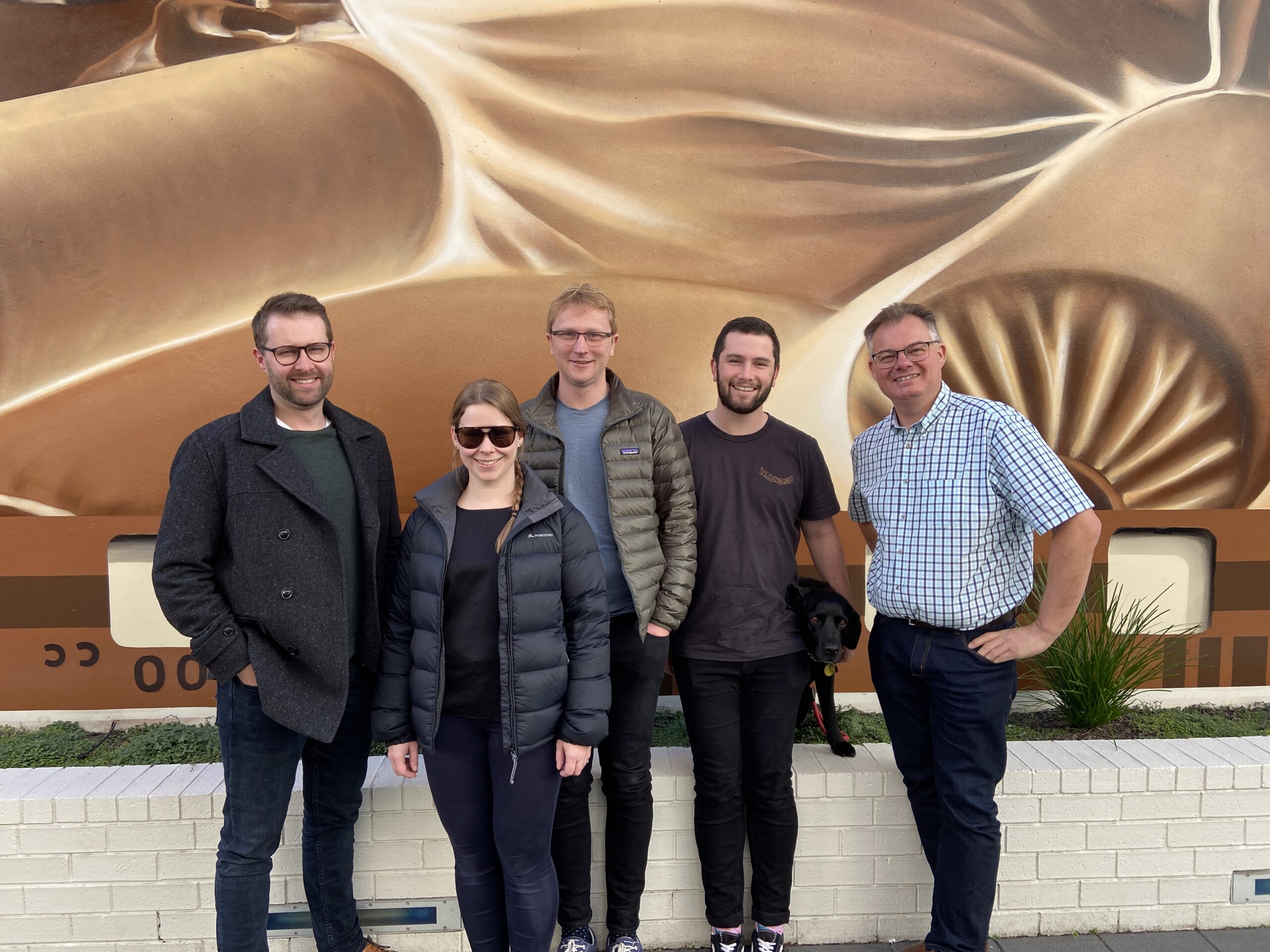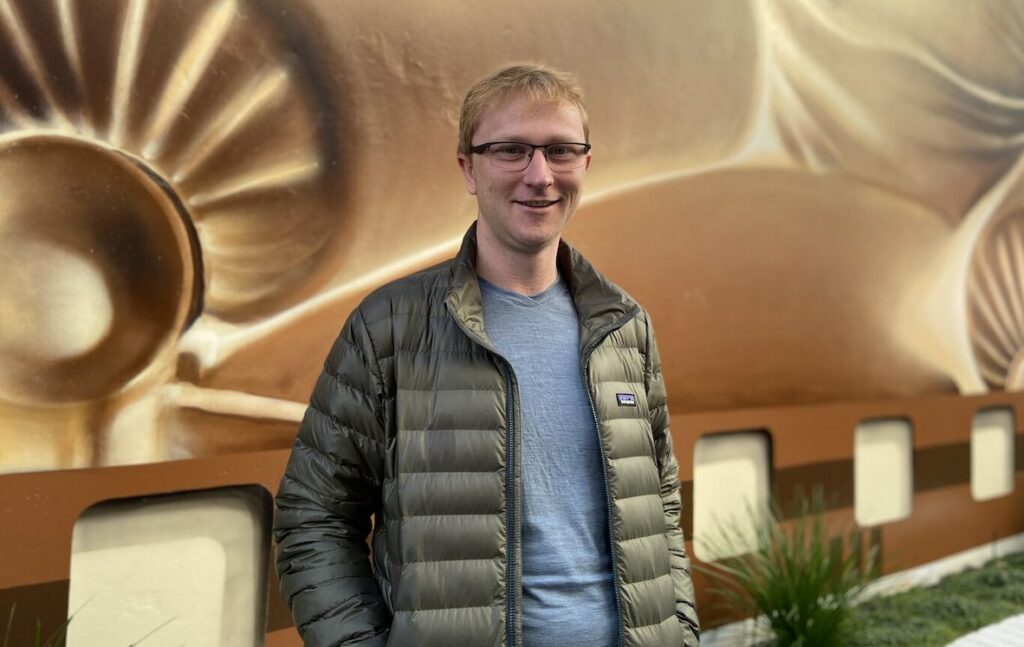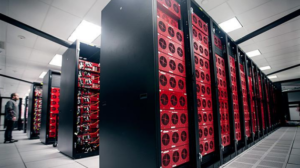
The usual track for start-up glory is not for Michael Lawson. The CEO of Couchdrop is as ambitious and determined as any other start-up founder but he will not be burning capital on lavish offices or high-profile recruitment campaigns. No internal slides or foosball tables for this lot.
Couchdrop is taking the road less travelled by early-stage software companies: paying careful attention to product quality, hiring only a few, handpicked, experts and aggressively chasing the bottom line.
“What really gets me motivated is making the world’s best tech and being insanely profitable,” he says. “I see lots of start-ups scaling up by hiring staff. It’s a default response to stress. But it affects culture and reduces the start-up edge. So I’m keen to keep this organisation as lean as possible and as scalable as possible so that we can become profitable as possible.”
It’s an ambition that excites investors. In March 2022, Punakaiki Fund invested, and now holds 17% of the company. It’s the second time Punakaiki Fund has invested in one of Michael’s ventures. The first was Linewize, an internet safety company which provided a cloud-managed firewall service specifically developed for the education sector. Australian cyber safety vendor Family Zone acquired Linewize in a deal worth $16.5 million in October 2017.
Lance sees that Couchdrop has greater potential. “Couchdrop is a pure digital product company – it makes something can be replicated at marginal additional cost. So it can be hugely profitable if its products hit the mark. I think it’s one of the most exciting companies we’ve invested in so far.”
Getting the band back together
The story of Couchdrop starts with a whim. While still with Linewize, Michael wondered why file-sharing was so clunky and under-explored. One weekend in 2017 he wrote some code for a file-sharing product more suited to the age of the cloud.
“It was a minimum viable product and I put it out on Y-Combinator hacker news to see if there was any interest. I didn’t really think about it much but when I woke up the next day it had 300 requests. It was pretty simple – just a way to transfer files to Dropbox. We said it was free but you can pay $10 if you want, and it kept being downloaded. And then we started getting bigger customers.”

The timing was uncanny. Michael’s tenure at Linewize was coming to an end. He’d sold the company and the new owners’ hierarchical culture was starting to chafe. The lure of starting again was tickling his ankles. So he scratched the itch, and took a gang of Linewize staff with him. Jayden Bartram, now COO, was the first to come across. “He’s been helping me from day one. We actually hired him at Linewize to remove porn from any of the content, which he thought was a laugh, but he has turned out to have a ton of skills. Jayden’s the guy who tidies up after I leave a mess and keeps the wheels spinning on the sales front. He’s been critical to our success.”
He was followed Chris Roy, now customer success and support (“Chris was our first hire at Linewize”) and then Thorsten Castor, now a senior architect.
Pulling the team out of Linewize feels like a victory for Michael. “I learned quite a few things in that process. I think we sold too soon, we hadn’t finished what we started. And I want to create a culture where talented people can thrive, not be told what to do by superiors. I just want us to focus on fixing clients’ problems and giving great service. That’s all that matters. So I’ve reassembled a great team and now we’re doing it better.”
Filling the gap
Couchdrop’s niche is narrow but deep. The company offers two products – Movebot and Couchdrop SFTP. Movebot helps companies transfer a vast volume of files between cloud platforms, while Couchdrop SFTP is for regular secure file transfers within and between organisations. Both products have seen rapid acceleration in adoption over the last 12 months, and Michael says they are cementing their place in the data-moving and cloud-adoption industry.
“In the last year, our products have supported petabytes of data movement and billions of file transfers into the cloud, helping companies to accelerate the adoption of cloud technologies,” says Michael.
Just in case you need a refresher, a petabyte is big. One petabyte is equal to 1000 terabytes, which itself is 1000 gigabytes. Some estimate a petabyte is the equivalent of 20 million tall filing cabinets or 500 billion pages of standard printed text. And herein lies the opportunity. While other file sharing companies such as Dropbox and Microsoft’s Sharepoint have focused on the front end, providing sharing and storage tools for millions of customers worldwide, Couchdrop operates behind scenes, buried inside the walls like an engineer doing the thankless task of joining a mess of cables with the right sockets.
“There’s a lot of investment in providing synergy for the end-users. Xero and Salesforce and Dropbox are great tools. But file transfer is overlooked. It’s not sexy and has been sitting there for 10 years ticking away without any investment.”
The client list is impressive: Dropbox, Egynte and Backblaze are partners and customers that Michael can mention. There are many others. And Covid has accelerated demand, as businesses and consumers move to the cloud and consolidate storage platforms with Dropbox, Google Drive, Amazon AWS and Azure. Backblaze’s server room stores 150 Petrabytes of data.
“We discovered that the move to cloud-based computing was far from trivial and the toolset to enable a fast and easy transition was missing.”

The shift to cloud has increased security risk too. Michael says the cyber-attack of the Reserve Bank in January 2021 was a hack of a file transfer system. “It’s the result of a legacy system that doesn’t work with anything this century.” He says trust is a key driver of demand – banks, government agencies and the enterprise end of town simply can’t afford data breaches.
Michael got a huge boost confidence when the BBC called. “They wanted to use Couchdrop to share files to a new cloud server. I listen to BBC podcasts every day. It was a really cool day when that happened.”
Catching competitors napping
Michael is slightly surprised by Couchdrop speedy uptake. Of the company’s two products Movebot has received the most product development – yet Couchdrop SFTP is the star performer. “We’re not doing a very good job of marketing and yet we’re growing. Customers find us on Google.”
A partnership with Dropbox has helped. It also helps that Couchdrop’s competitors are multinationals whose focus is on other things. “Our main competitor is worth $1.4 billion but it hasn’t evolved its data-sharing product. IBM Sterling, Help Systems and Go Anywhere – they’re companies that have bought products like ours years ago and sat on them. They don’t have an engineering interest in evolving them and have milked the market. But the cloud has changed everything.”
Couchdrop’s customers are demanding greater security. They’re in healthcare, banking and logistics and have high-security needs and large data pools – and they say that Couchdrop is the only system that works on cloud storage. “They’re making the transition to Dropbox or Sharepoint and then they search for us. Dropbox is already selling our product and I don’t think anyone in Australasia is doing that. Gives me real pride to be so small and lean and be selling to such huge companies.”
Growing with care
It’s at this point you’d expect Couchdrop to be hiring like mad and expanding offices across the globe. And that’s happening, but far more modestly than the headline implies. With the venture capital investment, Michael hopes to expand the Christchurch-based developer team and spend money on sales.
But he’s wary of splashing it around. “I’m ruthless with priorities. I say ‘no’ most of the time – until it completely makes sense. As the company grows the decisions about what to focus on can become more about what staff and customers want, rather than what’s right for the company. You can get splintered and head in conflicting directions.”
The company employs the Objective and Key Results (OKR) management practice developed by Intel’s Andy Grove. “We actively reduce the things we’re working on and we judge everything by those criteria. Although I say we’re customer-centric, I also say that we don’t have to respond to everything they ask for. For example, we could be doing email and calendar migrations amongst other things, but have actively chosen to say no. Most companies scale by hiring more people. But that increases burn rate and distracts, and slows the organisation. I want to be very focused.”
Other interests
I ask Michael if being the ‘no guy’ is a tough gig. “It’s not the easiest to do and kind of lonely. But it allows you to over-achieve on certain things and that gets noticed. It’s why we’re continuously getting bigger customers. We do a great job and scaling that is the challenge. So many start-ups are on continuous burn asking who’s going to fund them next? That’s not for us.
“I want to fuel this growth with sales and profitability. Our ambition is to reach $10 million in annual recurring revenue before having to raise capital again.”
Such single-minded focus could make him a one-trick Michael. But the father of two children (five and three) has interests beyond Couchdrop. Family for one thing. Space for another. Michael is curious about autonomous systems and is intrigued by the discipline that space places on redundancy. “I’m curious about the challenge of sending a finished robot into space that you can only fix remotely. I experienced that a little bit with Linewize – we needed to make changes remotely without schools losing their data. But the redundancies in space are next level and full redundancy hasn’t been solved. The only way to solve it is to reduce complexity.”
Michael admits he’s not wealthy enough to play in the space race. But time will tell. The sale of Linewize gave him more income than most people his age could dream of. Couchdrop is bigger yet. With a laser focus and a dream team of developers who knows what’s possible?
Certainly, one to watch.